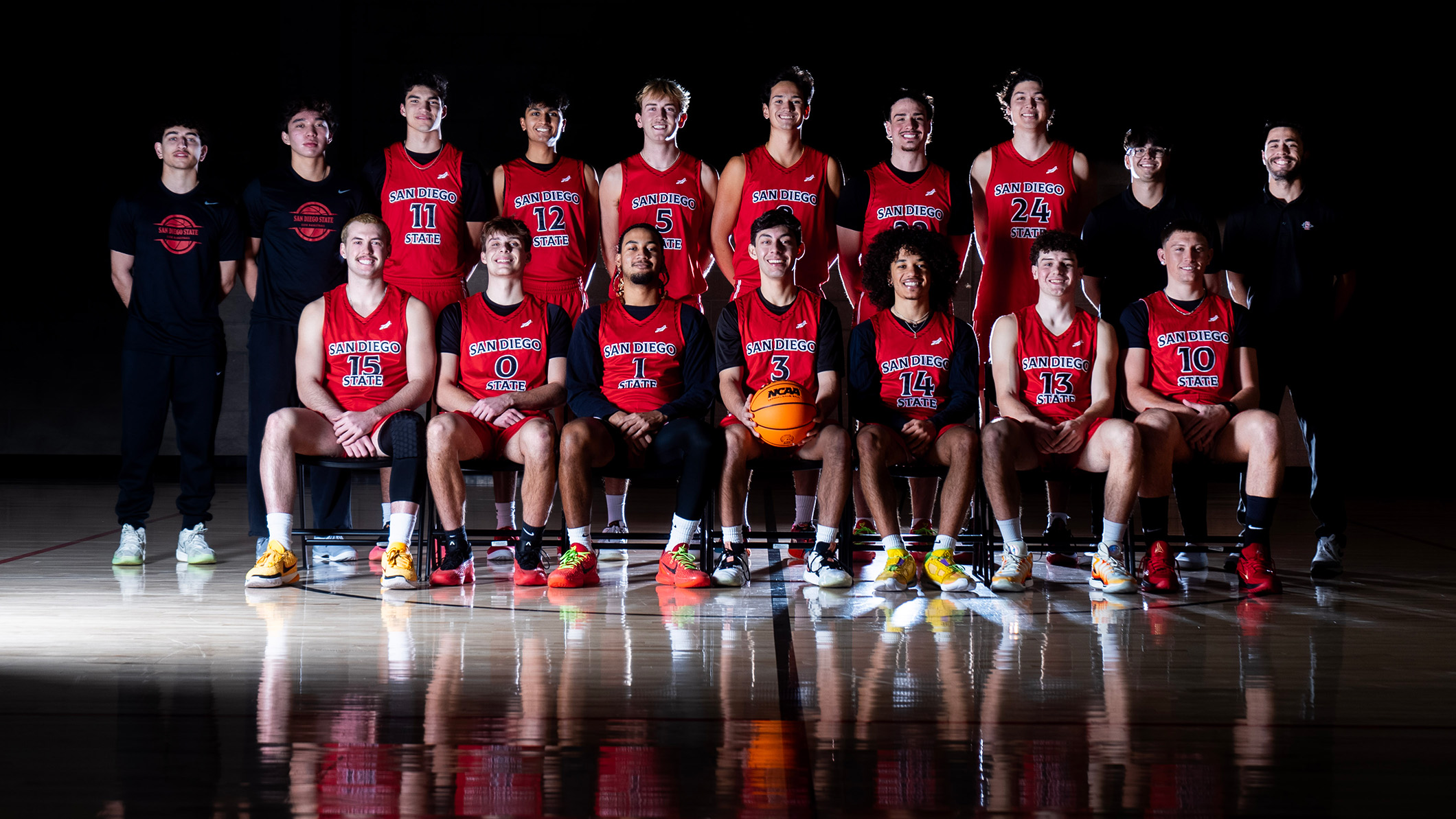Three Student Researchers Chosen for Sally Casanova Scholarships
SDSU students who faced multiple challenges will receive mentoring and scholarships to pursue Ph.D. degrees.

Courage and dogged determination helped these students overcome paths riddled with obstacles.
Life has taken many turns for Vanessa Serrano who has navigated choppy seas from a young age, but she never lost sight of her goal – to pursue knowledge and get a good education. Unlike most of her peers who took it for granted, she had to fight hard for her right to education.
She is one of three students from San Diego State University, along with Talia Kieu and Maribel Cruz Reyes, selected as 2019-20 Sally Casanova Scholars, a California State University award to help students with economic and educational disadvantages pursue doctoral programs. The award comes with one-on-one mentoring, opportunities to connect with doctoral programs at universities, and a $3,000 pre-doctoral scholarship, and aims to increase diversity in faculty ranks.
“These exemplary SDSU students illustrate the remarkable grit and determination needed to capitalize on each academic opportunity presented to them,” said SDSU President Adela de la Torre. “The Sally Casanova Scholars award further propels these exceptional students so they can continue to pursue doctoral studies, and become the new academic leaders that will re-imagine and represent the university of the future.”
Battling barriers to knowledge
Serrano was born and raised in El Cajon, in a family that objected to a public school curriculum which did not mesh with their beliefs.
Serrano was determined and decided to chart her own path.
“I went to court to gain emancipation, took the California High School Proficiency Exam, began working in a café while taking online classes through MiraCosta College because it allowed students to start early, moved out and began living on my own from age 16,” said Serrano, who is now a senior at SDSU completing a double major in psychology and communications, while minoring in biology – all while supporting herself as a waitress.
While friends her age have been enjoying the typical activities of teens and young adults, Serrano has never had time for it, but has no regrets.
“I’m happy with the decision I made, and I don’t really miss not doing all that.”
When she came to SDSU, she applied to the Advancing Diversity in Aging Research program that prepares minority students for a Ph.D program in aging research, and was placed in a University of California, San Diego lab that does neurobehavioral research, where she was mentored by researcher Jessica Montoya and had the opportunity to be a co-author on a paper.
She hopes to pursue a doctoral program in clinical psychology, focused on chronic diseases and their neuropsychological effects on patients.
“The Casanova Scholars award will help me apply to many top-notch programs,” Serrano said. “Being selected showed me I’m on the right track, and I’m doing something right.”
Sexual and gender minorities health
Talia Kieu was raised by her mother and grandmother, who migrated to the U.S from Vietnam in the 1970s.
When Kieu and her brother were growing up in Garden Grove in Orange County, her mother was the sole earner for the household of four, and there were periods when she was unemployed, which made things tough. But the family was determined to improve their circumstances.
“Both of them were very supportive, they prioritized me over their own needs, and I was their main focus,” said Kieu, who began college at the same time her mother graduated from CSU Long Beach.
She came to SDSU to pursue a degree in public health, because she is a big believer in social justice and decided to pursue it from the health angle. Now a senior, she does research on the health issues of gender and sexual minorities, focused on queer and transgender youth.
“I got funded through the IMSD program (Initiative for Maximizing Student Development) program for my research hours, so I was able to quit several part-time jobs,” Kieu said. “Being economically challenged made it hard to devote more hours to research.”
In her time here, she has won an award for a research presentation at the Annual Biomedical Research Conference for Minority Students, completed summer research at the University of North Carolina, Chapel Hill which she got to present at the Centers for Disease Control and Prevention in Atlanta, and is mentored by Jerel Calzo, a developmental psychologist with the School of Public Health.
Kieu was surprised and grateful she was chosen for the award. “The Casanova Scholars award takes out the financial worries about applying to graduate school across the country.”
First gen to social psychologist
Always a top student in high school, academics came easily to Maribel Cruz Reyes, who is the second of four children raised in Escondido by a homemaker mother and a father with his own landscaping business. She is the first in her family to go to college, and is a second-year graduate student in social psychology.
Scholarships, need-based aid, a work-study program, and a summer job made it possible to attend the University of Redlands for her bachelor’s degree.
She sought out SDSU and mentor Dustin Thoman for her master’s because the program offered her the opportunity to combine two subjects close to her heart.
“I meshed my love for teaching and understanding behavior and wound up in social psychology with an education focus,” Cruz Reyes said. “My dream is to finish my Ph.D. and be faculty at a university that encourages teaching with continued research.”
She is considering the joint doctoral program with SDSU and UCSD, along with other programs. Her research focus is to better understand persistence in higher education with underrepresented minority students.
“The reason why I’m doing all this is to give back to my community and to my parents who sacrificed so much to help me get here. I’d like to show my community that hard work does pay off,” she said.
The Casanova Scholars award is “a validation of all of the work I’ve done, it will help financially but it will also open up a lot of doors for me which is the most valuable as a minority student,” Cruz Reyes said.
Sally Casanova award
The CSU awards are open to upper-division undergraduate and graduate students. The scholarship helps defray the costs associated with visiting doctoral-granting institutions to explore opportunities for continued study and travel to professional meetings. It also can be used for graduate school applications, test fees and research materials, among other expenses.
The SDSU recipients are among 75 Sally Casanova Scholars selected by a committee of CSU and University of California representatives. The award is named in memory of a former associate vice president for academic affairs and dean of graduate studies at CSU Dominguez Hills who launched the pre-doctoral program in 1989.



